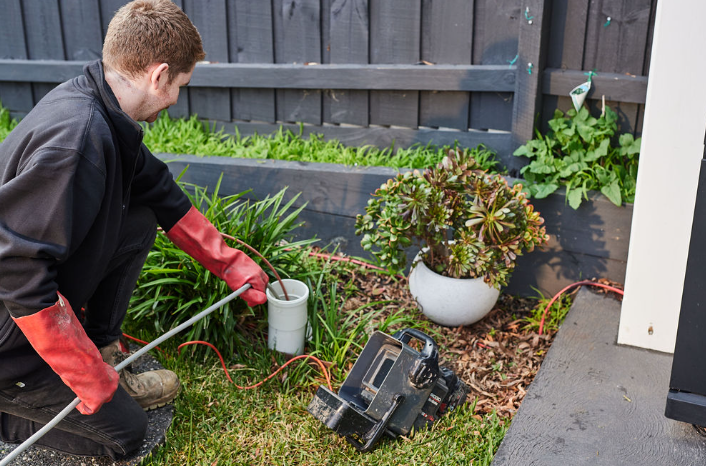Cracked Pipes: Why They Happen and What to Do
.webp)
Pipes are the hidden heroes of your home's infrastructure, quietly whisking away water and waste. But when something goes wrong - like a crack appearing, the results can be messy and expensive. Understanding the causes of cracked pipes and how to manage when it happens can help you resolve the issue before it escalates. Let's dive in.
Causes of Cracked Pipes
Cracked pipes may be caused by various factors including:
- Freezing: This is the most common reason for cracked pipes, especially in colder regions. Water expands when it freezes, and this expansion can break your pipes.
- Age: Over time, pipes can weaken due to wear and tear and may eventually crack.
- Pressure: High water pressure, or even excessive weight from soil or concrete can crack your pipes.
- Corrosion: Rust and other forms of corrosion can eat away at the pipe, causing it to become thin and brittle.
"Preventing a cracked pipe can save homeowners thousands of dollars in water damage repair and replacement costs."
What You Can Do
If you notice a crack in your pipes, don't panic. There are several steps you can take to mitigate the damage and get your home back up and running in no time.
The first thing you need to do is identify the size and location of the crack. Small hairline fractures may not require immediate repair, but larger cracks or those located near a joint or connection point should be dealt with expeditiously.
After you've assessed the situation, you need to determine whether or not you can handle the repair on your own. Minor cracks can often be fixed using a pipe repair kit, found at your local hardware store. These kits typically include a sealant and a patch, which can be applied directly to the cracked area of the pipe. But remember, this should only be considered a temporary solution.
For more significant damage, or if you're unsure about the severity, it's best to call in a professional. Plumbing is a complex system, and a misstep could lead to even greater problems down the line (pun intended!). Trained professionals have the skills and tools necessary to fix the issue correctly and quickly. Enhanced damages could otherwise prove to be a costly affair.
While waiting for a professional, you may want to shut off the water supply to prevent further damage. Remember to drain the remaining water in your pipes by running your faucets. This will reduce the pressure and limit the amount of water that can escape from the crack.
Lastly, it's important to take steps to prevent future pipe cracks. This can involve insulating your pipes to protect them from cold weather or regularly checking for signs of corrosion. Proper maintenance of your home's plumbing system is critical to ensuring its long-term health and functionality.
Regularly clearing your plumbing system is one beneficial preventative measure. Buildup of sediment and debris can create pressure inside the pipes, leading to eventual cracking. Regular cleaning can help mitigate this issue, ensuring a clear pathway for your water to flow.
Moreover, you should keep a close watch on the water pressure in your pipes. Excessive water pressure can weaken the pipes over time, leading them to crack or burst. If your water seems to be coming out of your faucets or showers with more force than usual, it might be time to check your water pressure and adjust it if necessary.
Stormy weather and rapid temperature changes can also lead to pipe cracks. This is especially common in areas where the temperature can fluctuate significantly within a short period. Parts of your plumbing system exposed to such conditions should be insulated or reinforced.
What do you do when despite your best efforts, a pipe cracks? Don't be overwhelmed - take a deep breath and switch off the water supply to halt further damage. It's also prudent to contact a professional plumber as soon as possible for repair work. Patch jobs may work temporarily, but a professional will ensure a long-term solution to prevent further problems.
Lastly, always remember that being proactive will save you both money and stress in the long run. Regularly maintain your pipes and keep an eye out for early warning signs of potential issues. With just a few preventative measures in place, you can keep your home's plumbing system running smoothly for years to come.
Need to talk to an expert?
Our South Melbourne team of qualified, expert plumbers are here to help.
Call us on (03) 9501 3777 or request a call back.


%20(1).webp)


